The Copperbelt project in Zambia under the Copperbelt Dairy Expansion Project, is supporting efforts to boost fodder and forage production while improving dairy cow genetics in Mpongwe, Luanshya, and Ndola districts in the Copperbelt Province. In collaboration with the Dairy Association of Zambia, WeForest Zambia leads the forage and fodder component, integrating agroforestry to enhance climate resilience in dairy production. To strengthen project implementation, the project team comprising Leah Banda, (Copperbelt project manager), Bwalya Silwamba (agroforestry specialist) and Carmen Malupande (agricultural extension officer) conducted learning visits to the top research and demonstration sites focused on fodder and forage production within the country. The site visits included:
Golden Valley Agricultural Research Trust (GART)
Located in Chisamba, Central Province, GART specializes in applied and adaptive research, including agroforestry and pasture management.

Its pasture production unit contains grasses like Rhodes grass (Chloris gayana), Panicum maximum, and Buffel grass (Cenchrus ciliaris), along with legumes such as Lucerne alfalfa (Medicago sativa), Jack beans (Canavalia ensiformis) and Sesbania sesban. The institution also cultivates agroforestry species like Gliricidia sepium and Faidherbia albida, alongside fruit trees such as mangoes and avocados. It supports research by providing pasture seeds and space for contract research, making it a valuable agricultural resource.
Kasisi Agricultural Training Centretical
Located in Lusaka Province, focuses on organic and conservation farming methods to improve food security and livelihoods for small scale farmers.
At Kasisi, the team learned about semi-zero grazing, where dairy animals are partially free-ranged in areas with indigenous tree species such as Piliostigma thonningii and supplemented with cut-and-carry feed from Gliricidia sepium and Leucaena leucocephala leaves. The root split method for pasture establishment was demonstrated as a technique to enhance sustainable fodder production. Kasisi’s value addition in dairy processing, such as cheese and sour/fermented milk production, highlighted ways to improve profitability while maintaining resource efficiency in dairy production.

Visit to Palabana University
The visit to Palabana University showcased its emphasis on agricultural skills and trade development through practical short courses. A key takeaway was the integration of pasture and trees in rangelands to promote sustainability while enhancing natural forests with edible fruit trees such as the Balck Mulberry (Morus nigra). The University’s demo plot featured various forage species like Napier grass (Pennisetum purpureum), forage sorghum (Sorghum bicolor), and Leucaena leucocephala, highlighting their importance in livestock nutrition. Additionally, its pasture baling enterprise, with bales priced between $35.70 and $49.98 when enriched with legumes, demonstrated a profitable agribusiness model for dairy farmers.
HygroTech and Livestock Services Centre

While visiting HygroTech and Livestock Services Centre in Lusaka, the team gathered market data on pasture seeds, including grass and legume varieties, as well as their prices. Both centers offered a range of seeds for dairy farmers, such as Rhodes grass, Napier grass, and forage sorghum, providing valuable insights into seed availability and affordability.
The learning visit was instrumental in gaining practical knowledge on sustainable fodder and forage production. Insights from these institutions will be integrated into the project’s forage production strategies, supporting dairy farmers in enhancing productivity while ensuring climate resilience through agroforestry.

Support forest science and smallholder farmers
In Zambia’s Copperbelt, WeForest works with hundreds of small-scale farmers, providing them with training and tools to diversify their sources of income while they restore miombo woodlots on their farmlands.
Contact our team today to explore how your organisation can contribute to a greener, healthier future.













